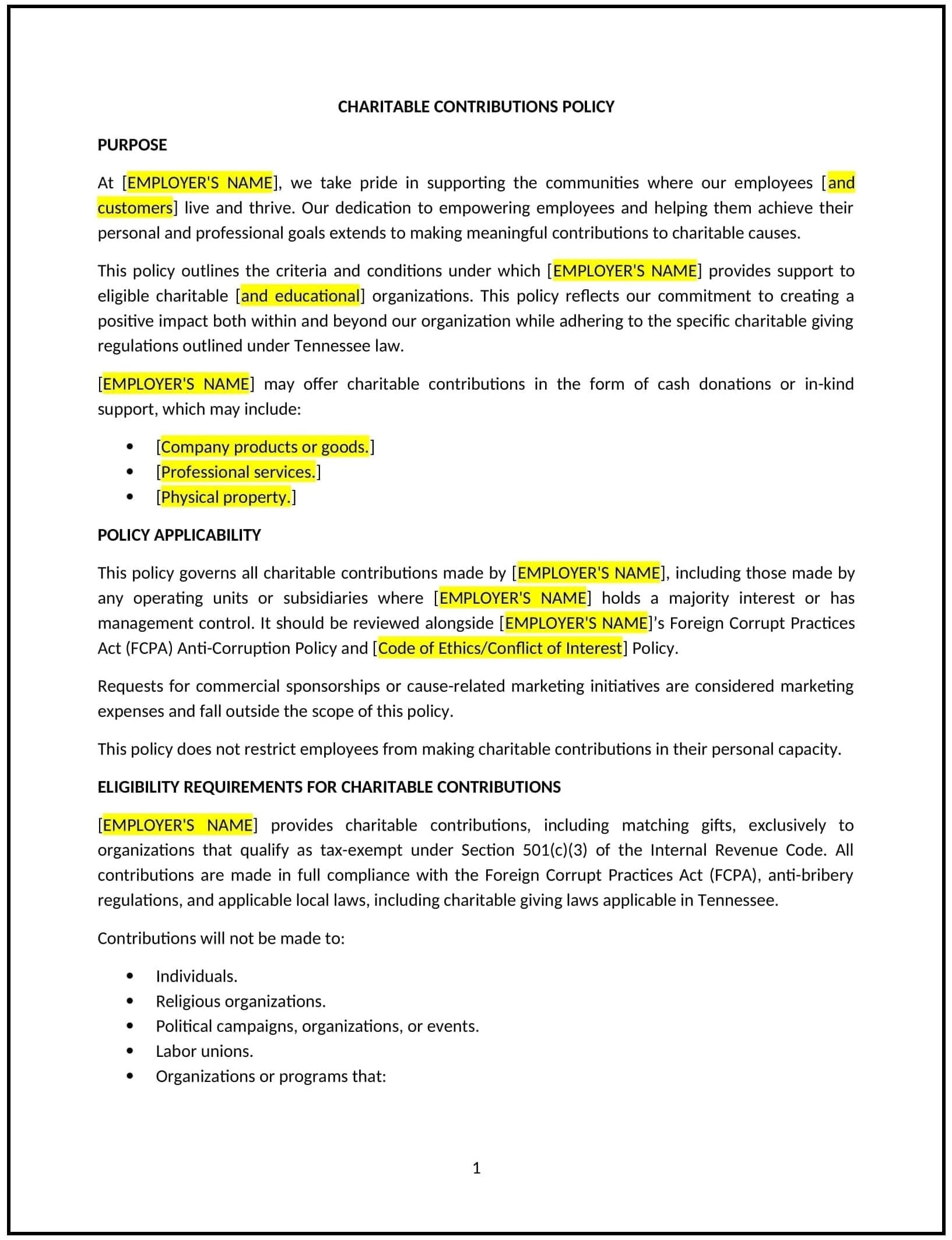Charitable contributions policy (Tennessee): Free template
Got contracts to review? While you're here for policies, let Cobrief make contract review effortless—start your free review now.

Customize this template for free
Charitable contributions policy (Tennessee)
This charitable contributions policy is designed to help Tennessee businesses create guidelines for donating to charitable organizations. It outlines procedures for selecting charities, approving donations, and tracking contributions.
By adopting this policy, businesses can support community initiatives, enhance their reputation, and align with corporate social responsibility goals.
How to use this charitable contributions policy (Tennessee)
- Define selection criteria: Clarify how charitable organizations will be selected, such as alignment with the business’s values or community impact.
- Set approval procedures: Provide steps for approving donations, including budget limits and required documentation.
- Address employee involvement: Explain how employees can participate in charitable initiatives, such as volunteer programs or fundraising events.
- Track contributions: Outline how donations will be recorded and reported, including tax implications.
- Train managers: Educate supervisors on implementing the policy and managing charitable initiatives.
- Review and update: Assess the policy annually to ensure it aligns with evolving business needs and community priorities.
Benefits of using this charitable contributions policy (Tennessee)
This policy offers several advantages for Tennessee businesses:
- Supports community initiatives: Demonstrates a commitment to giving back and supporting local organizations.
- Enhances reputation: Builds trust and goodwill with customers, partners, and stakeholders.
- Aligns with corporate social responsibility: Helps businesses achieve their CSR goals and contribute to social causes.
- Boosts employee morale: Encourages employees to participate in charitable initiatives, fostering a sense of purpose.
- Provides tax benefits: Allows businesses to claim tax deductions for eligible charitable contributions.
Tips for using this charitable contributions policy (Tennessee)
- Communicate the policy: Share the policy with employees and include it in the employee handbook.
- Provide training: Educate managers on implementing the policy and managing charitable initiatives.
- Monitor compliance: Regularly review donations to ensure adherence to the policy.
- Address issues promptly: Take corrective action if charitable contributions are mishandled or misallocated.
- Update regularly: Assess the policy annually to ensure it aligns with evolving business needs and community priorities.